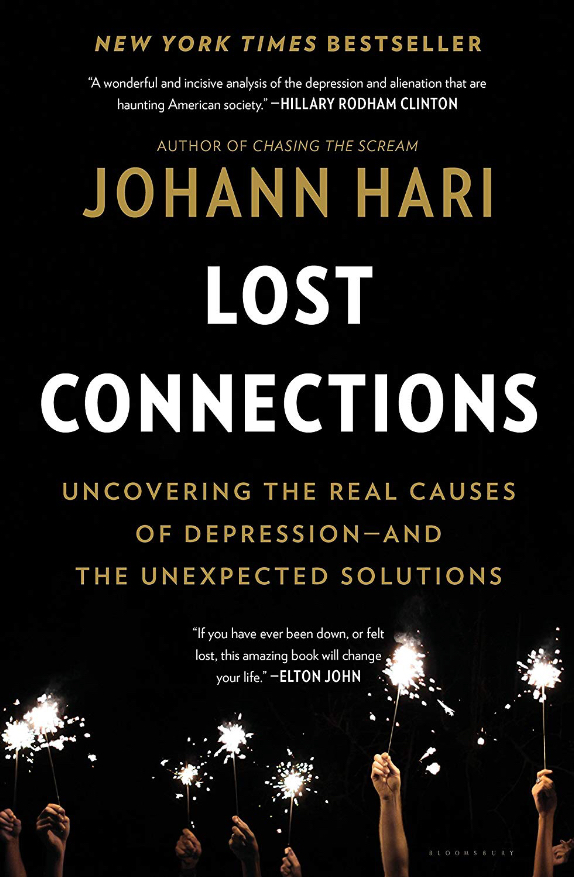9 Causes of Depression
 By Jesse Jost
By Jesse Jost
Johann Hari is someone who has struggled with extreme depression and was on antidepressants for 12 years. In his insightful book “Lost Connections,” he questions the common story peddled by many in the drug industry. For years he believed that depression was caused by a broken brain – a chemical imbalance – and the way to fix it was through pills that altered the brain chemistry. After years of pills that only caused a temporary upswing in mood, followed by years of nasty physical side effects, Johann wanted to take a closer look at the causes and remedies for depression. He found that depression has many causes other than simply biology. There are psychological and sociological causes as well. Rather than a mere imbalance in the brain, depression is mental and emotional pain that is a natural response to a broken world.
Here is my summary of the 9 causes of depression that Johann discovered.
- Disconnection from meaningful work
Some depression can be caused by work that makes people feel they have no control over their roles or position and that their opinions don’t matter. Other job factors that lead to depression include a perpetual sense that you are falling behind and the work keeps piling up no matter how hard you try. Also jobs that have a low reward to effort ratio make a person feel trapped, i.e. hard work that is unnoticed and under appreciated.
2.Disconnection from other people
Loneliness, a sense that you are alone, that you are not part of a group that protects and values you, can play a large role in depression. The scary thing is that loneliness snowballs, and causes people to “shut down socially and be more suspicious…You become hypervigilant. You start to take offense where none was intended, and be afraid of strangers. You start to be afraid of the very thing you need most.” We all need to feel like we belong, that we have people who will listen and accept us, and that we play a valuable role in their lives as well.
- Disconnection from meaningful values
We are motivated by two categories of motivations. One is “extrinsic” motivation. We will do something we’d rather not do, so that we will get something that we do want. For example, we will take a job we hate so we have money to pay the bills, do a painful workout so we can have a better body, etc. The other type of motivation is “intrinsic” motivation. We do something just for the sheer pleasure of it, or the action matches our convictions so we want to do it regardless of attention or reward. Johann argues that the more your day is filled with time spent doing only the things that are extrinsically motivated, the more likely you’ll spiral into depression. Johann also believes that our culture places too much significance on wealth, status, and material goods, so that people feel the acquisition of these things is what will make them happy. But people end up living years of drudgery, doing the things they hate, trying to chase the hollow dream. Continue reading…

 By Jesse Jost
By Jesse Jost